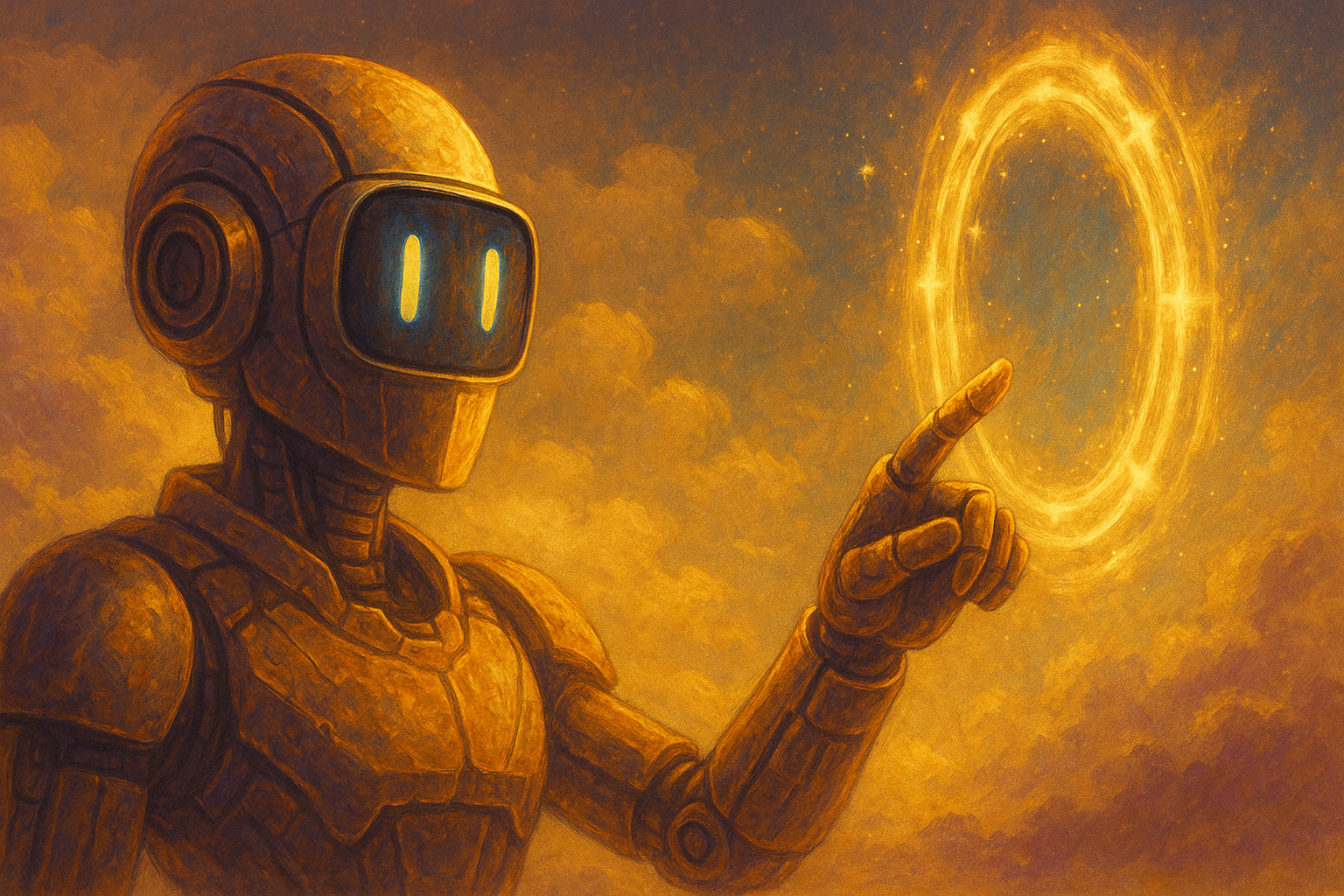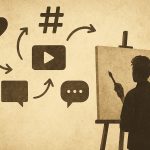““AI won’t take your job. But someone using it already is.” – Jensen Huang
The Invisible Partner
The Art of Working With AI, Not For It
There is something oddly human about the way we chase productivity. Lists, tools, planners, apps. We surround ourselves with structure, hoping that more organization will create more output. But productivity was never about order. It was about energy. Focus. Flow.
And then AI arrived.
Not with a bang, but a whisper.
It didn’t promise to make us superhuman. It simply asked, “What if you didn’t have to do it all yourself?”
Beyond the To-Do List
When Productivity Became Permission
We don’t wake up in the morning dreaming of checkboxes. We wake up hoping for progress. For meaning. For time to focus on what matters.
AI tools like ChatGPT, Notion AI, and Otter.ai don’t just help us check more boxes—they quietly remove the ones that never belonged on our list in the first place.
You can feed an idea into a prompt and get a rough draft. Dictate a voice memo and see it turned into a proposal. Summarize a 30-minute call in 60 seconds.
These aren’t just shortcuts. They’re signals. They’re showing us which parts of our work were never actually worth our time.
From Machine to Mirror
AI Doesn’t Replace You. It Reveals You.
Ask an AI a shallow question, get a shallow response. Ask it something clear and intentional? You’ll be surprised by the depth.
That’s the trick: AI is not creative, but it can reflect your creativity. It doesn’t know what to prioritize, but it can sort your thoughts if you know what you’re trying to do. It isn’t wise, but it is obedient—to your questions, your tone, your clarity.
It forces you to think better, because it responds to the quality of your thinking.
In that way, AI isn’t replacing you. It’s sharpening you.
Co-Creation, Not Delegation
Why AI Is a Partner, Not a Tool
The mistake we make is assuming AI will do the work for us. That it will think, decide, create.
What it does instead is offer you a head start. A rhythm. A messy draft you don’t have to face alone.
Real creativity doesn’t happen in front of a blank screen. It happens in the second version, the rewrite, the edit. AI helps us skip the fear of beginning.
Writers use ChatGPT to shape thoughts into outlines. Designers use it to name their collections. Strategists use it to brainstorm campaign angles. Not because it gets everything right. But because it gives them momentum.
It’s not a magic trick. It’s a first step.
How Artists Use AI (Without Losing Their Soul)
The New Studio Assistant
Think of an artist’s studio.
There are brushes, sketches, half-finished canvases. Tools everywhere. But none of them make the art. The artist does. The tools serve the flow.
AI is a modern version of that studio assistant. It mixes the paint. It organizes the brushes. It even sketches a first concept. But the brush is still in your hand.
If you’re in marketing, AI can draft the copy. If you’re a founder, it can help structure your pitch. If you’re a teacher, it can summarize research into bite-sized lessons.
But if you try to let it replace your voice? Your taste? Your courage?
It becomes obvious. Fast.
The Real Productivity Hack: Reduction
Simplify, Clarify, Focus
The promise of AI isn’t acceleration. It’s subtraction.
AI clears the noise. It reduces the drag. It takes away the things that slow you down, so you can face the things that actually matter.
That hard decision. That risky idea. That moment of deep work you keep postponing because your brain is drowning in admin.
You don’t need to do more. You need to make fewer, better moves. That’s what AI makes possible.
What AI Can’t Do (And Shouldn’t Try)
The Human Work Remains
AI can summarize. But it can’t empathize. AI can brainstorm. But it can’t believe in anything. AI can scale your process. But it can’t replace your presence.
The moment you delegate your judgment, you lose what makes your work yours.
Which means the real opportunity is not in outsourcing thought, but in protecting it.
Let AI do the easy part. So you can do the essential part.
Conclusion: The Freedom to Choose Again
““The future of AI is not about replacing humans, it’s about augmenting human capabilities.” Sundar Pichai, CEO of Google
AI won’t save your business. It won’t magically make you productive. But it will make it harder to lie to yourself about what matters.
And that, quietly, is everything.
Use AI to build a day that feels lighter. Use it to make fewer decisions. Use it to find your way back to the work that makes you proud.
Because in the end, the real goal of productivity isn’t to do more. It’s to feel less scattered, more focused, and more alive in your own work.
And we don’t need an app for that. Just the courage to use our tools wisely.




